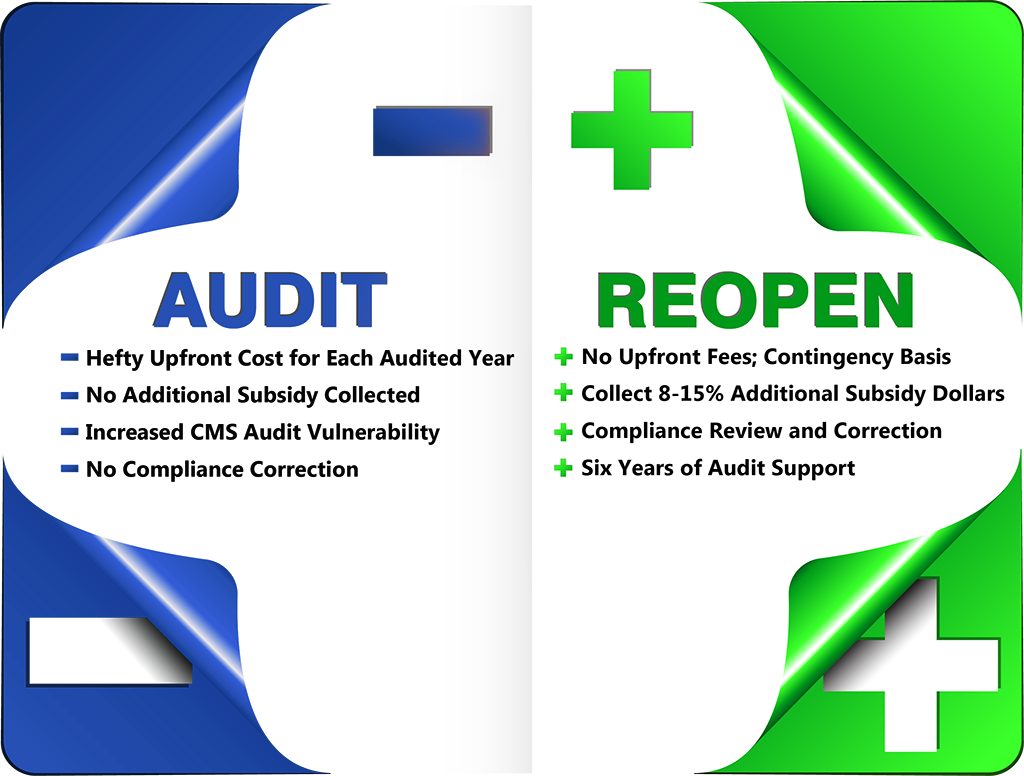Audit for a Fee. Reopen for Results.
Making the Right Choice: RDS Audit vs Reopening
Many Plan Sponsors believe that a RDS Reopening and a RDS Audit (also known as a Retiree Drug Subsidy Audit) are the same process and produce the same results, but this couldn’t be further from the truth.
When a Plan Sponsor is looking to improve their Retiree Drug Subsidy program payments many firms will offer to “audit” their previous filings. While this sort of due diligence review is admirable, the outcome is not what the Plan Sponsor expects.
The process results in a Plan Sponsor paying a hefty upfront fee for the audit work, which takes up a significant amount of their time and resources to complete and end up with nothing but a list of issues the “auditors” identified. The audit process itself does not fix any of the errors found in a Plan Sponsor’s RDS application.
Additionally, if a Plan Sponsor is made aware of compliance issues with their subsidy payments during a RDS audit and does not self-correct or report their findings, they’ve significantly raised their vulnerability if audited by the Centers for Medicare and Medicaid Services (CMS).
Worse still, in order to get the firm that identified the issues with a Plan Sponsor’s application to remedy the situation, the Plan Sponsor has to pay them again, paying twice for something that could have been handled entirely (and for financial benefit) by reopening their previous applications.
The RDS audit step is unnecessary and a waste of resources because compliance issues are identified and rectified if the entire reconciliation process is redone properly, as it is during the reopening process. We don’t believe our clients should pay twice for a process that can be done once, which is why PDA does not audit RDS applications for a fee. We reopen for results.

